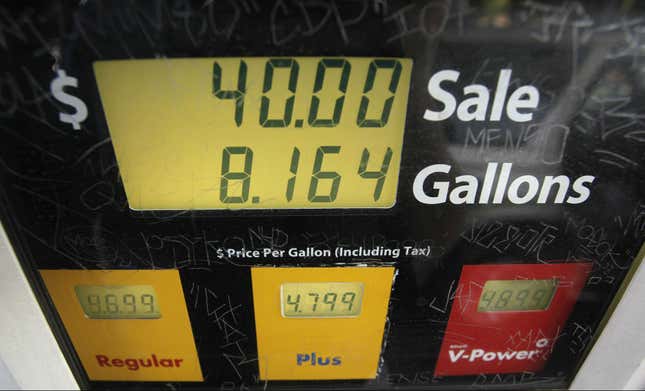
If you are an oil-futures bear, or the owner of a gas-guzzling car, you may be shouting “hallelujah” right about now. Not so much the world’s petro-rulers. The reason is oil and gasoline prices, which have plunged over the last week, the result of what numerous voices are calling the dawning age of fossil-fuel abundance. Goldman Sachs, whose feverish notes to clients a decade ago led a charge of investors into commodities, now says the bonanza and high prices are over and that traders can get back to their knitting. This is more evidence of the end of the commodities supercycle, which we have discussed.
So are bears right to be so elated, and are oil-dictators who rely on high prices valid in being depressed? Over at Barclays, Paul Horsnell argues no. In an Oct. 24 note to clients, Horsnell says that while the world may be awash in oil, geopolitics have not changed. “A down move in oil should not become too overextended, as in particular Syria looks like a long-lived disaster that will cause spillovers across the region,” he writes. “The outlook for Iraq is looking less promising, and the Iranian nuclear issue still seems to be headed on a potentially highly unsettling course.”
But, looking squarely at the market, the bears seem to have a more compelling case at the moment. Oil and commodity prices generally surged over the last decade because of a perfect storm—supplies were tight, and China’s economy was rising like a helium balloon. Now, both of those factors are reversed, and so the air is coming out of the commodities bubble. Importantly, trader sentiment has shifted to bearishness.
Most recently, we have been watching the market swing pretty wildly. Brent crude is now at around $108; it was last that low three weeks ago. Back in June, it fell to just above $90 before resuming its climb. But what Goldman and others are saying is that the momentum is down. If geopolitics disrupts supply, or if the China juggernaut resumes, we will need to look again. For the coming five or so years, though, we appear to be looking at generally lower oil and gasoline prices, albeit with temporary disruptions.



